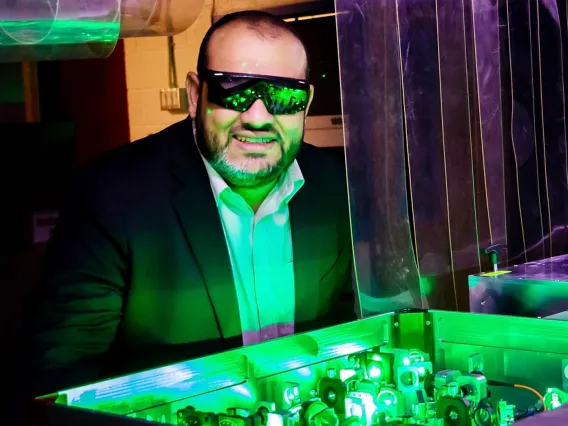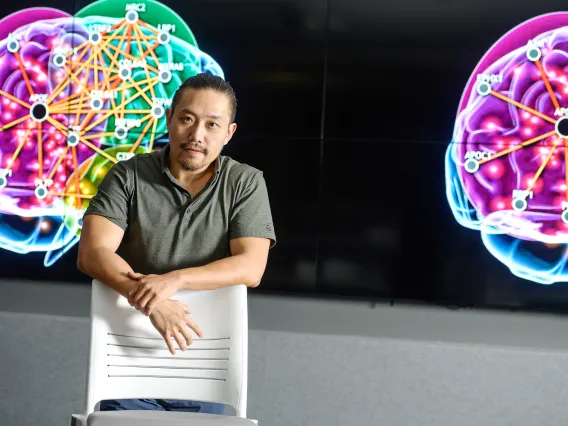Wear It Well
Data, devices and health

Photo: Adobe Stock
Data is key to modern medicine, and everyday wearables offer the promise of more comprehensive data for better health outcomes. Unfortunately, due to multiple points of failure — including device removal, jiggling, and loss of contact or loss of power — Fitbits and smartwatches still don’t come close to delivering clinical-grade data.
Led by Philipp Gutruf, assistant professor in the College of Engineering, the Gutruf Lab is overcoming these deficiencies with “biosymbiotic” wearables: custom-printed, perfect-fit mesh wearables that provide continuous, high-fidelity sensing anywhere on the body. They get power and send data wirelessly, disappear under clothing and are so lightweight that users can forget they’re there.
The lab is also creating implantables that open avenues for gathering data and delivering interventions. A collaboration with University of Arizona orthopedic surgeons created the world’s first battery-free digital internal sensors to capture data on bone health. The devices also have integrated LEDs to deliver therapeutic optical stimulation, all powered wirelessly.
The research team also co-invented a next- gen pacemaker. In lieu of electrical leads attached with screws or hooks, a soft, wireless, battery-free “glove” unfolds around the heart. Placement is less invasive, and rather than shocking the heart — including its pain receptors — it issues precisely targeted light that only stimulates the neurons that trigger contraction.
Ultimately, the scientists see these two domains converging: seamlessly integrated wearable and implantable devices — wireless, fully automated and always on – that merge sensing and stimulation to deliver unprecedented insight into health and provide closed-loop, personalized interventions.
Data Connects Us
The Data Connects Us series is published in partnership with the university's Office of Research, Innovation & Impact (RII) and the Institute for Computation & Data-Enabled Insight. RII content was written by Eric Van Meter and originally published in the RII Magazine in December 2023 based on reporting by Rosemary Brandt, Logan Burtch-Buus, Anna Christensen, Emily Dieckman, Mikayla Mace Kelley, Susan McGinley, Kimberly Nichols and Niranjana Rajalakshmi.





